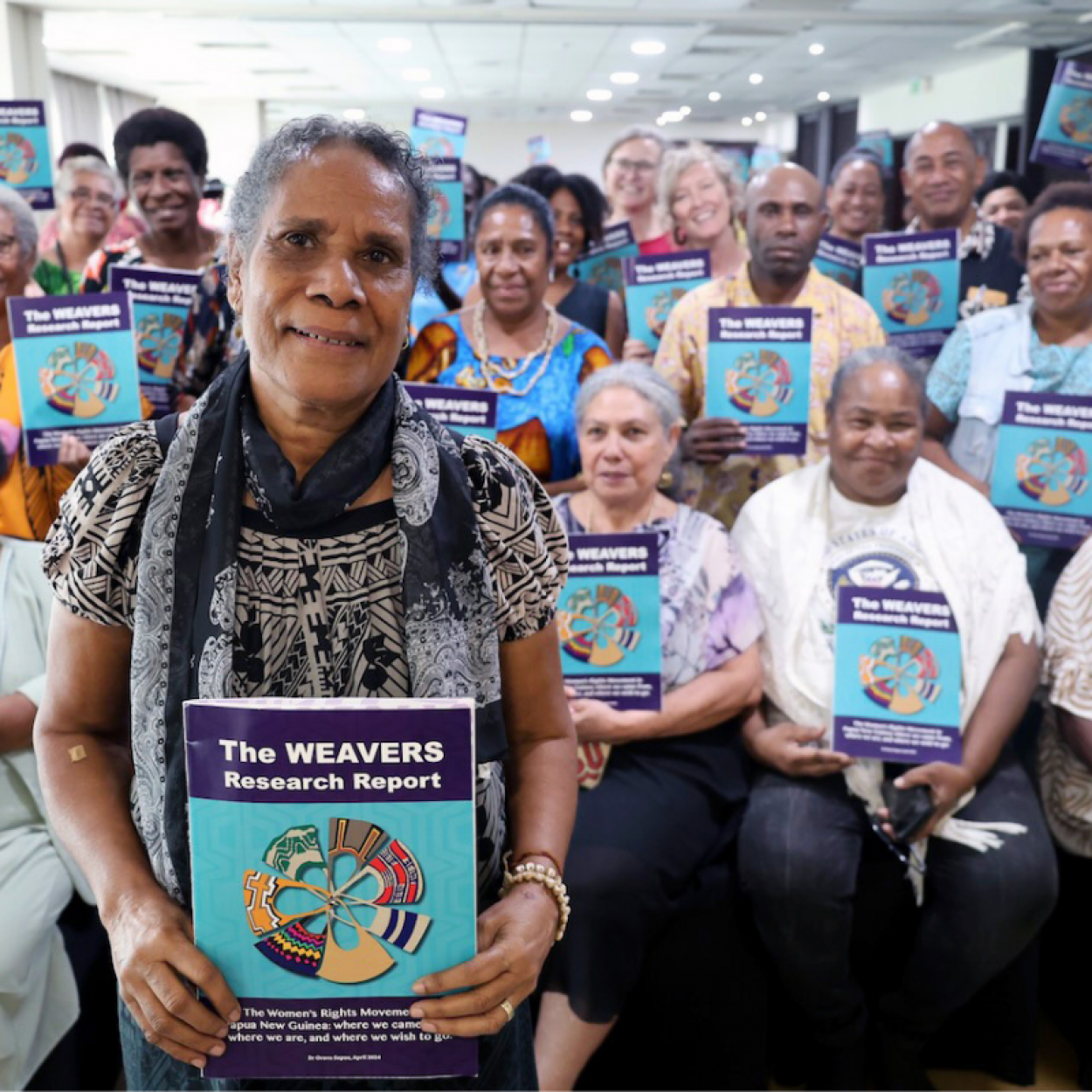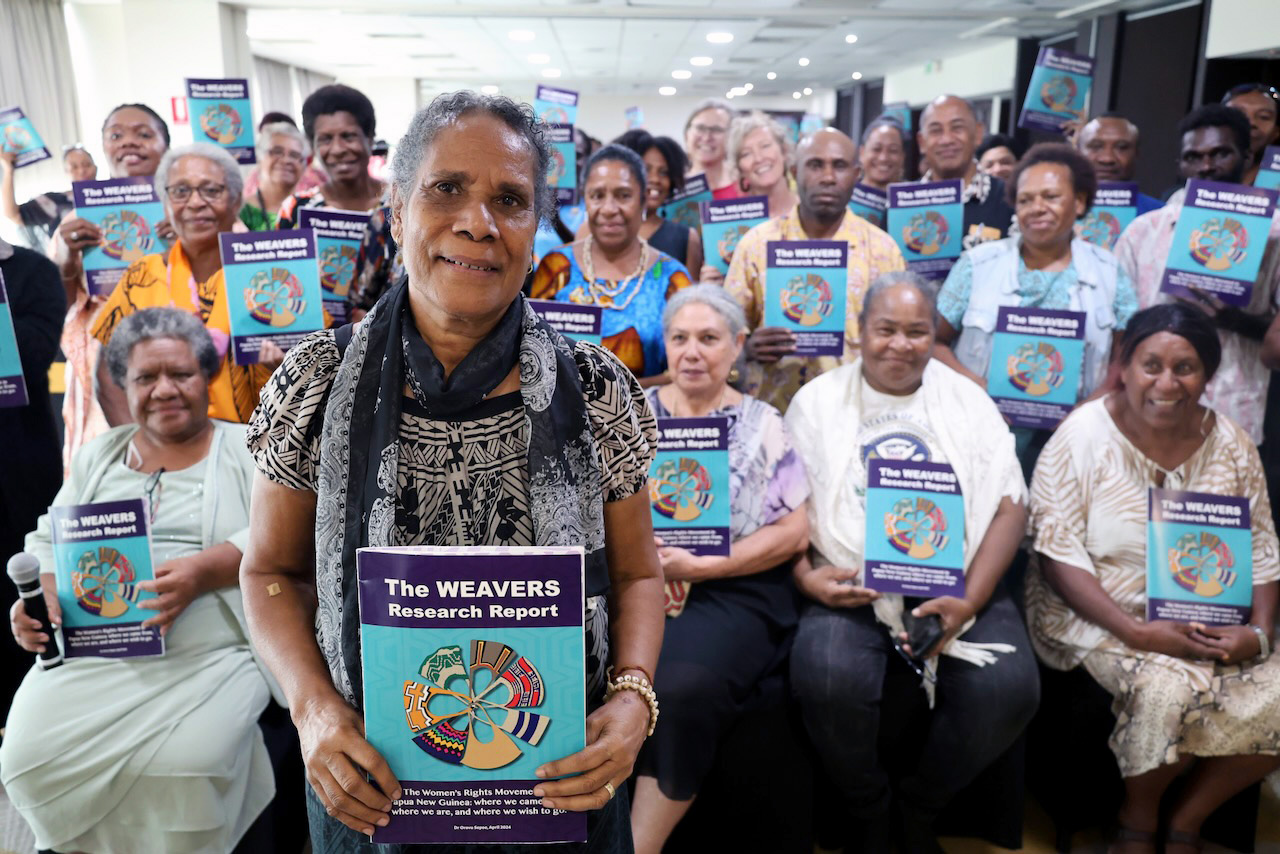
New research delves deep into PNG’S women’s rights movement
Groundbreaking new research highlights the strengths, challenges and powerful role of the women’s rights movement in Papua New Guinea (PNG).
‘The WEAVERS Research Report – The Women’s Rights Movement in Papua New Guinea: where we came from, where we are, and where we wish to go’ was conducted by lead researcher Dr Orovu Sepoe and a steering committee of diverse PNG women’s rights advocates and activists.
The research team engaged with 38 women’s rights organisations from five research sites across PNG.
The research reveals a strong cultural precedent of women coming together in PNG – Meri Bung in Tok Pisin – providing a strong foundation for today’s women’s rights movement.
Research findings also highlight that despite fragmentation, weak institutional linkages and funding constraints, women’s rights organisations share a “collective consciousness” – meaning they have a shared understanding of their values and purpose that informs their perseverance in speaking out and taking action to protect women’s rights.
Dr Sepoe said the research was locally led and guided by the steering committee, which worked collaboratively across all research phases and had representation from disability inclusion and human rights organisations, faith-based groups, and groups representing gender-diverse people across all regions.
“The diverse backgrounds and experiences of the research team enriched the research process and outcome,” Dr Sepoe said. “Consensus-based and shared decision-making ensured inclusiveness. Different views were shared, and diverse voices were heard,” she said.
The report found that the PNG women’s rights movement faces a critical challenge in obtaining adequate resourcing for its crucial work. In addition, the report recommends that women’s rights advocates need to recognise that it is their right to demand government accountability.
“Governments and other development partners must make it their responsibility to commit core funding or a separate budget line (a substantial level of funding and other resources) to enable women’s rights organisations and rights actors to continue their work in addressing gender inequality and promoting women’s empowerment,” Dr Sepoe said.
“Not doing so is injustice. PNG cannot progress without achieving gender equality and protection of the rights of women,” she said.
The research provides future directions and recommendations for the women’s rights movement, governments, supporters and partners.
The research was commissioned by IWDA and funded by the Australian Government through the PNGAus Partnership.
